In today’s digital age, establishing an online store is no longer a luxury but a necessity for businesses looking to thrive. When it comes to setting up your woocommerce e-commerce platform, choosing the right content management system (CMS) is a pivotal decision.
While there are several CMS options available, this blog will focus on the comparison between WooCommerce and other CMS platforms to help you make an informed choice for your e-commerce venture.
The Dominance of WooCommerce
WooCommerce, a renowned CMS initially designed for blogging, has evolved into a versatile platform that powers millions of e-commerce stores.
Let’s start by examining what makes WooCommerce a compelling choice:
-
User-Friendly Interface
One of WooCommerce’s standout features is its user-friendly interface. It’s intuitive, making it accessible for beginners and experienced developers alike. Adding products, managing inventory, and customizing your e-commerce site is a breeze with WooCommerce.
-
Extensive Plugin Ecosystem
WordPress boasts an extensive library of plugins, including the popular WooCommerce. These plugins add powerful e-commerce functionalities to your site, such as shopping carts, payment gateways, and inventory management. The abundance of third-party plugins allows you to tailor your e-commerce store to your exact needs.
-
Themes for Aesthetic Appeal
WooCommerce offers a vast selection of themes, many of which are designed specifically for e-commerce. These themes provide a professional, polished look for your online store, and they are customizable to align with your brand identity.
-
SEO-Friendly
Search engine optimization (SEO) is vital for driving organic traffic to your e-commerce site. WooCommerce is inherently SEO-friendly, with clean code, responsive design, and numerous SEO plugins available to optimize your store’s visibility in search engine results.
-
Scalability
As your e-commerce business grows, WooCommerce can scale with you. Whether you have a small online boutique or a large marketplace with thousands of products, WooCommerce can handle it.
WooCommerce vs. Other CMS Options
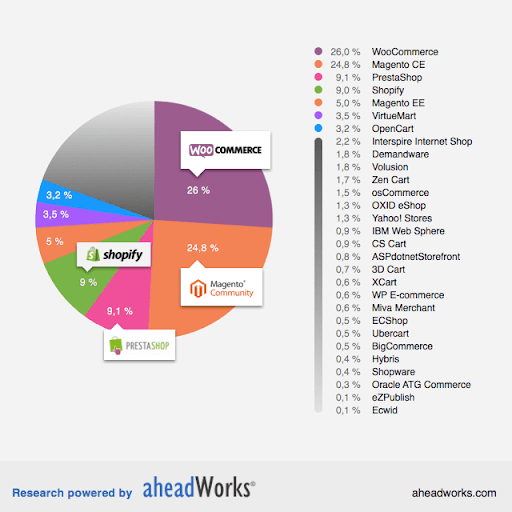
Now, let’s compare WooCommerce with other CMS platforms to provide a comprehensive view of your choices:
Shopify:

Shopify is a dedicated e-commerce platform known for its ease of use. While it’s excellent for beginners, it might have limitations if you require advanced customization.
Are you looking for a WooCommerce Developer
WooCommerce offers more flexibility and control over your site’s design and functionality.
Features
- User-friendly interface for easy store management.
- A wide range of professionally designed templates.
- Extensive app store for adding functionalities.
- Secure hosting with automatic updates.
- Comprehensive inventory management.
- Multiple payment gateways, including Shopify Payments.
- Built-in SEO features for better search engine visibility.
- Mobile-responsive design for seamless shopping on all devices.
Magento:

Magento is a robust e-commerce platform suitable for large enterprises with complex requirements. However, it comes with a steeper learning curve and higher development costs. WordPress, with WooCommerce, can handle many of the same tasks with a lower barrier to entry.
Features
- Highly customizable and scalable for complex e-commerce needs.
- A vast selection of extensions and themes.
- Advanced SEO capabilities.
- Multi-store and multi-language support.
- Robust inventory management and product catalog features.
- Built-in marketing and analytics tools.
- Strong community support and active developer community.
Joomla:

Joomla is another CMS option with e-commerce capabilities, but it lacks the extensive plugin ecosystem and user-friendly interface of WooCommerce. For those looking for a simpler and more versatile solution, WooCommerce often proves to be the better choice.
Features
- An open-source CMS with e-commerce extensions.
- Flexible and customizable design and layout.
- Multilingual capabilities.
- Access to various third-party extensions.
- Suitable for content-rich websites with integrated e-commerce.
BigCommerce:

BigCommerce is known for its scalability and flexibility. It offers a range of features for businesses of all sizes, from small startups to large enterprises. It’s also user-friendly and has a wide selection of themes and apps.
Features
- Robust and scalable e-commerce platform.
- Wide array of built-in features, including payment gateways.
- Seamless integration with popular marketplaces like Amazon and eBay.
- Mobile-optimized storefronts.
- Strong SEO tools and analytics.
- Multi-currency support for global businesses.
- Security and compliance features.
Wix:

Wix is a user-friendly website builder that includes e-commerce functionality. It’s a great choice for small businesses or those who want a simple, all-in-one solution. Wix offers a variety of templates and allows for easy drag-and-drop design.
Features
- User-friendly drag-and-drop website builder.
- E-commerce capabilities with various payment options.
- A library of designer templates.
- Mobile-responsive design.
- App market for extending functionality.
- SEO features to improve search engine rankings.
- Integrated email marketing tools.
Square Online:
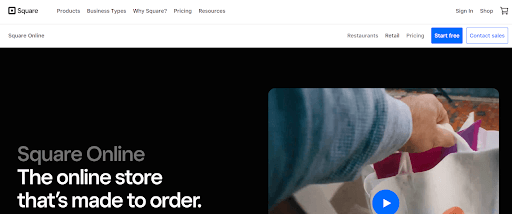
Square Online is designed for businesses that need a quick and straightforward way to start selling online. It’s tightly integrated with Square’s payment processing, making it convenient for businesses already using Square for in-person payments.
Features
- Integration with Square payment processing.
- Mobile-responsive online stores.
- Inventory and order management.
- Easy-to-use website builder.
- Social media integration.
- Secure checkout and payment options.
PrestaShop:

PrestaShop is an open-source ecommerce platform known for its customization options. It offers a wide range of features, and being open-source means developers can tailor it to specific business needs.
Features
- Open-source e-commerce platform.
- Highly customizable and modular.
- Multilingual and multi-currency support.
- Rich product catalog and inventory management.
- Marketing and SEO features.
- User-friendly back-office interface.
- Numerous themes and add-ons available.
OpenCart:
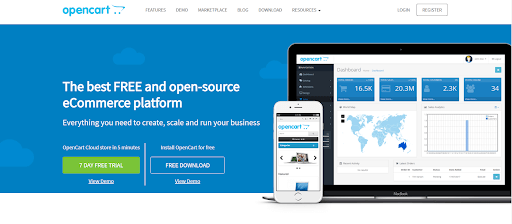
Another open-source option, OpenCart is a lightweight and easy-to-use platform. It’s a good choice for small to medium-sized businesses and offers various extensions and themes.
Features
- Lightweight and easy-to-install open-source platform.
- A variety of extensions and themes.
- Multilingual and multi-store support.
- Intuitive admin dashboard.
- Integrated payment gateways.
- SEO-friendly features.
- Community support and active development.
Drupal Commerce:

If you’re already familiar with Drupal, an open-source CMS, then Drupal Commerce might be a good fit. It integrates seamlessly with Drupal and provides e-commerce functionality.
Features
- E-commerce capabilities integrated into the Drupal CMS.
- Customizable and scalable.
- Multilingual and multi-currency support.
- Strong content management features.
- Built-in SEO tools.
- Access to Drupal’s large module library.
Ecwid:
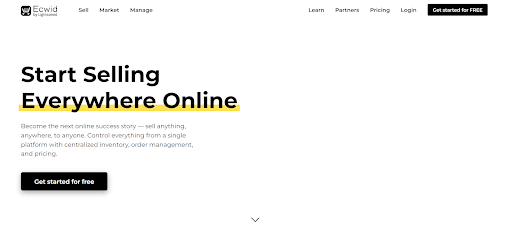
Ecwid is a versatile e-commerce solution that can be integrated into existing websites, including WooCommerce, Wix, and more. It’s an excellent choice for businesses looking to add e-commerce functionality to an already established web presence.
Features
- Versatile e-commerce solution that integrates with existing websites and social media.
- Simple setup and management.
- Mobile-responsive shopping cart.
- Integration with popular CMS platforms.
- Multilingual and multi-currency support.
- Secure payment options.
- SEO features for better visibility.
Volusion:

Volusion offers a robust set of e-commerce tools, including features for inventory management, payment processing, and SEO optimization. It’s suitable for businesses of various sizes.
Features
- Comprehensive e-commerce platform.
- Inventory and order management.
- A wide range of templates and design options.
- Marketing and SEO tools.
- Secure checkout and payment processing.
- Mobile-responsive design.
- Integrated CRM and reporting.
3dcart:

3dcart is a comprehensive e-commerce platform that offers a variety of features, including multichannel selling, SEO tools, and integrations with popular payment gateways.
Features
- All-in-one e-commerce solution with various features.
- Secure and scalable hosting.
- Extensive product management capabilities.
- SEO and marketing tools.
- Multilingual and multi-currency support.
- Mobile-responsive themes.
- Integration with popular payment gateways.
Miva:
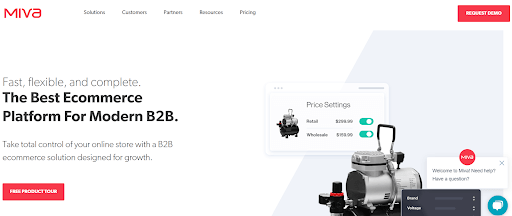
Miva is a flexible and customizable e-commerce platform that caters to both small businesses and larger enterprises. It provides a wide range of features for creating and managing online stores.
Features
- E-commerce platform designed for medium to large businesses.
- Customizable and scalable.
- Comprehensive inventory and order management.
- SEO-friendly features.
- Integration with various payment gateways.
- Advanced marketing and analytics tools.
- Mobile-responsive design.
Don’t miss out on our offer! Use code “XMAS10” to avail exciting discounts
Buy Plugins
Conclusion
When choosing an e-commerce platform, consider your specific business needs, budget, technical expertise, and long-term growth plans. Each platform has its strengths and weaknesses, so it’s essential to evaluate them thoroughly to find the one that aligns best with your goals and requirements.
Selecting the right CMS for your e-commerce store is a critical decision that will impact your business’s success. While other CMS platforms have their strengths, WooCommerce stands out as a versatile, user-friendly, and customizable option for e-commerce.


 Article
Article
 Infographic
Infographic
 Plugin Development
Plugin Development
 WordPress Development
WordPress Development
 WooCommerce Development
WooCommerce Development

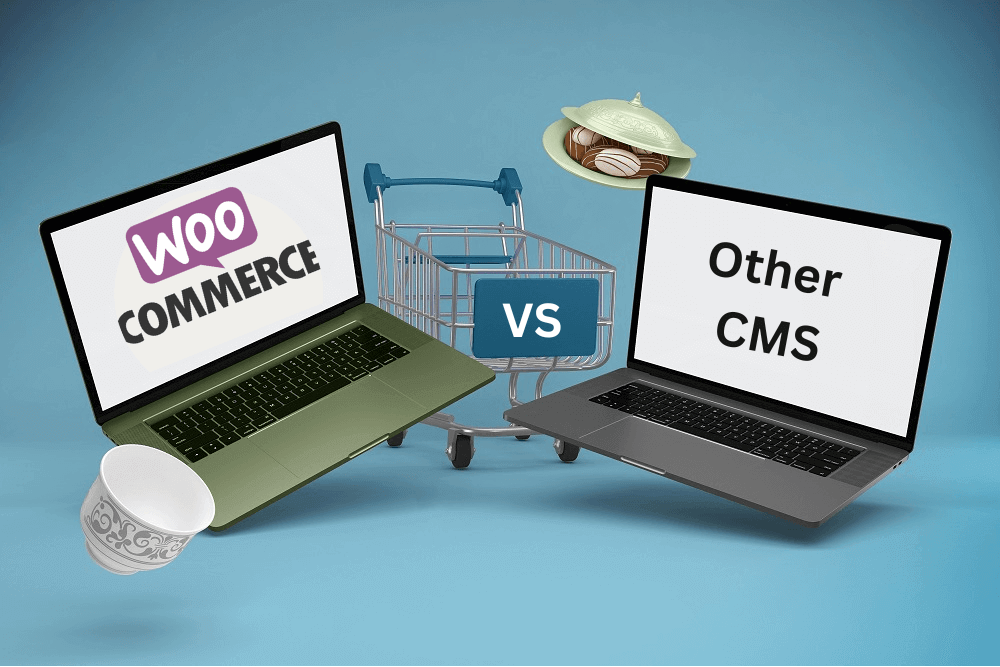

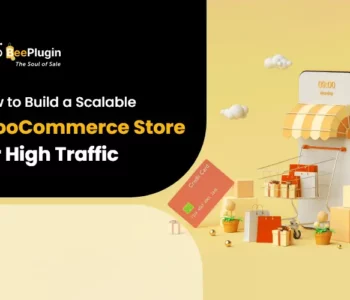


Jay